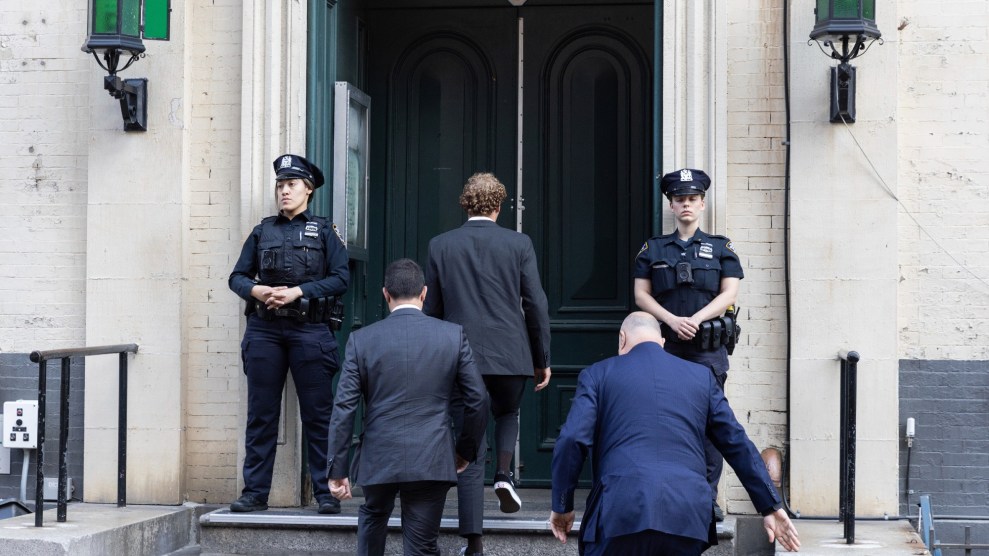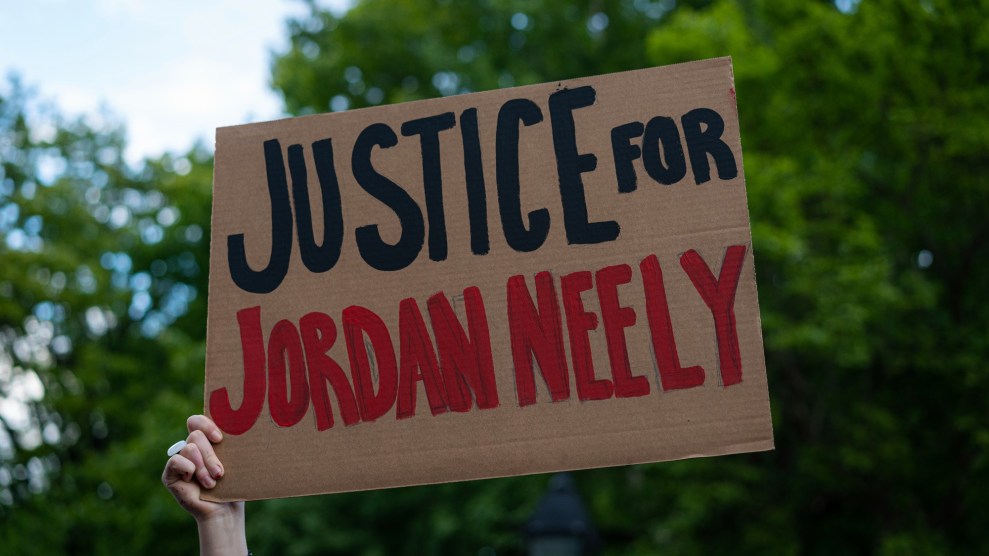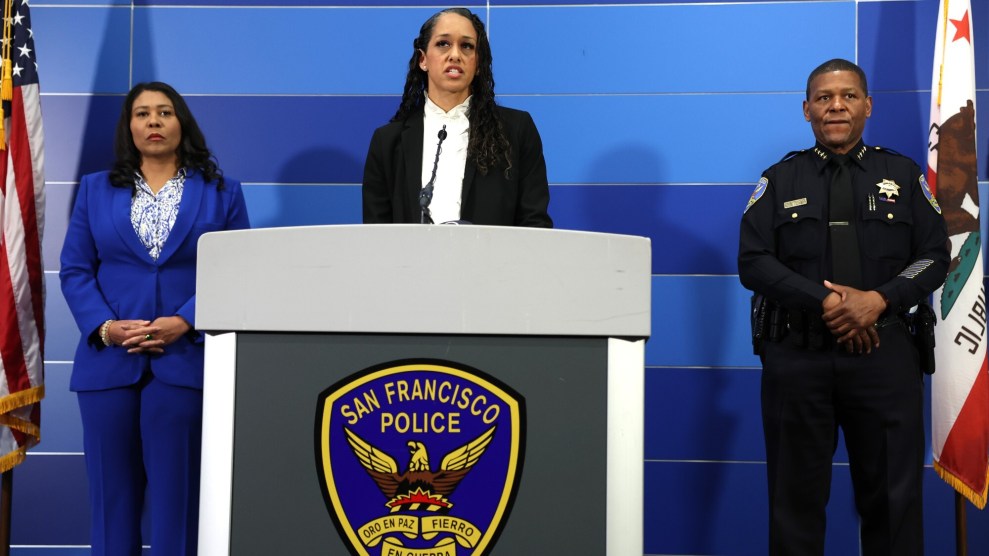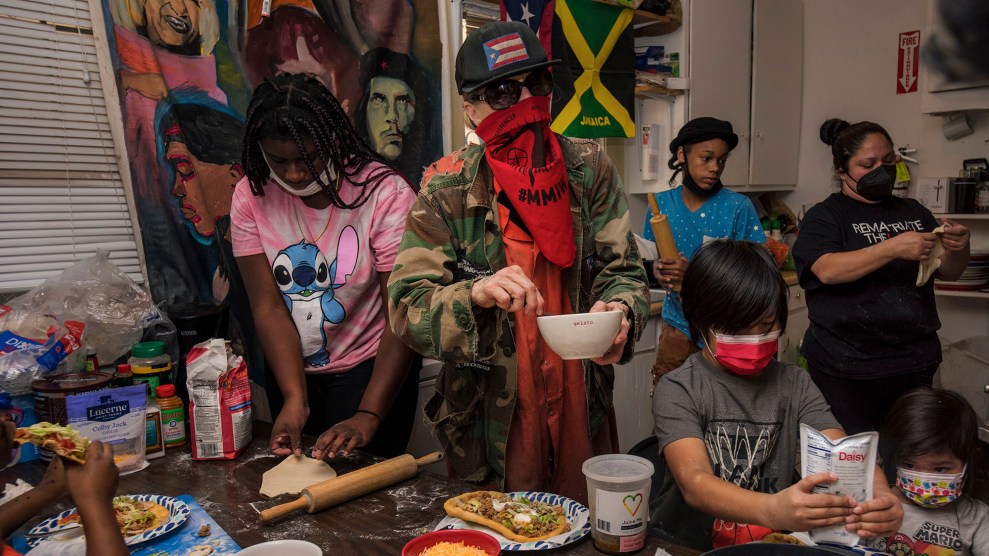
AP/Jeenah Moon
Amid intense anger and calls for justice, the man who put 30-year-old Jordan Neely in a deadly chokehold surrendered to police Friday morning to face a second-degree manslaughter charge.
Daniel Penny, the 24-year-old ex-marine who choked and killed Neely in a subway car last week, turned himself into the New York Police Department’s 5th Precinct. In a video recording from the deadly May 1 encounter, Penny was seen placing Neely, an unhoused street performer, in a chokehold for several minutes as another person restrained Neely’s arms. A bystander is heard warning Penny, “If you suffocate him, that’s it. You don’t want to catch a murder charge.” Penny has alleged that Neely had been “aggressively threatening” toward Penny and other passengers. A witness contradicted that characterization, claiming instead that Neely had been asking for food and hadn’t physically harmed anyone in the lead-up to Penny’s attack.
Neely’s shocking death has divided New Yorkers. Mental health advocates and city leaders have called for Penny’s arrest, in addition to increased protections for the unhoused and mentally ill, while others have pointed to the incident as evidence of mounting concerns over public safety. New York Mayor Eric Adams, who was criticized for his initial milquetoast response to Neely’s death, said Thursday that Neely’s “life mattered.”
“One thing we can control is how our city responds to this tragedy,” he said in a speech, adding, “One thing we can say for sure: Jordan Neely did not deserve to die.”
The city’s response to Neely’s death, and what it might mean for future policies regarding the serious lack of mental health resources, is sure to be closely watched. At the close of last year, Adams announced a plan to task police officers to remove people who appeared mentally ill off the streets. But the policy has proved divisive.
In his announcement last month, Adams appeared to be under the impression that the state’s commitment of 50 new beds for city hospitals would be enough to provide one for “everyone” who needed it. That, of course, is nothing short of a delusion; at least 60,000 people are homeless in New York, with thousands living unsheltered. A large majority of the unhoused suffer from mental illness. In his announcement last month, Adams appeared to be under the impression that the state’s commitment of 50 new beds for city hospitals would be enough to provide one for “everyone” who needed it. That, of course, is nothing short of a delusion; at least 60,000 people are homeless in New York, with thousands living unsheltered. A large majority of the unhoused suffer from mental illness.
Neely’s family is scheduled to take place at Mount Neboh Baptist Church in Harlem on May 19.
















